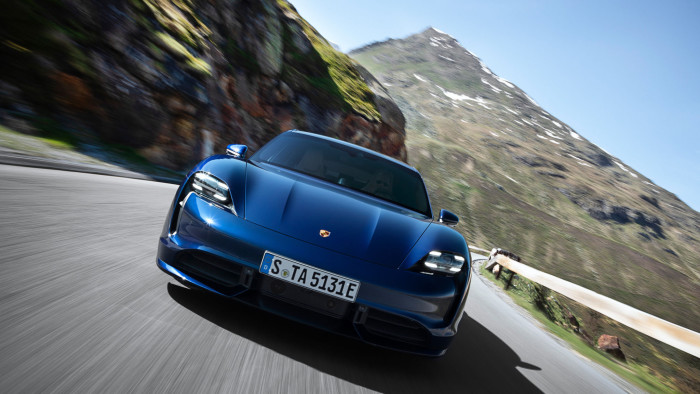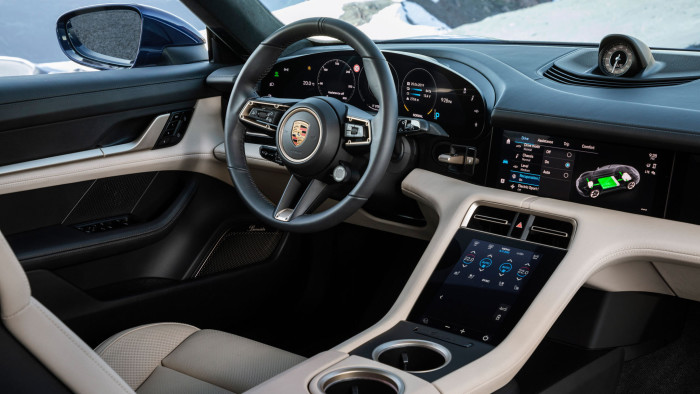Porsche unveils $150,000 all-electric sports car to challenge Tesla

Roula Khalaf, Editor of the FT, selects her favourite stories in this weekly newsletter.
Porsche has unveiled its first all-electric sports car, the first mainstream battery vehicle from a performance brand seeking to challenge the dominance of Tesla in the premium market.
The Taycan will spearhead the luxury end of a €50bn electric push by parent company Volkswagen, which is seeking to banish memories of its diesel cheating scandal by embracing electric technology.
VW, the world’s largest carmaker with an array of brands from Seat to Audi and Bentley, wants a quarter of its vehicles to run on battery power by 2025.
Porsche has set a similarly ambitious goal that half of all Porsche sports cars sold by 2025 will have an electric engine, whether a pure battery vehicle or a hybrid, Oliver Blume, chief executive, said on Wednesday.
The brand will spend €6bn by 2022 on electric technology, a figure included within VW’s own spending commitments. “This day marks the start of a new era,” Mr Blume said.
The industry is in the middle of a deluge of electric car launches as manufacturers race to get battery cars on sale ahead of tough new CO2 rules in Europe next year, as well as targets around electric sales in China.
Porsche’s launch, held simultaneously at a Chinese wind farm, a German solar panel farm and Niagara Falls, was intended to underline the company’s commitment to renewable energy. Porsche expects production of the vehicle will be “CO2 neutral”.
Porsche is the first major car from a performance brand to dispose of an internal combustion engine in one of its mainstream vehicles. Its luxury competitors such as Ferrari and Lamborghini have shied away from battery cars, while Aston Martin plans to launch battery cars under the separate Lagonda nameplate.
The move will pit the German brand against Tesla, which has dominated premium electric car sales since launching the Model S in 2012, despite numerous challenges such as production glitches within the US company.

The cheaper of the two Taycan variants unveiled on Wednesday, the Turbo model, costs about $150,000, while the higher specification Turbo S will cost $185,000.
One of the challenges sports car makers face is offsetting the weight of electric batteries, which hamper a vehicle’s performance when handling tight corners at high speed, as well as the battery-draining impact of rapid acceleration and braking.
Porsche says the Taycan is able to drive 450km on a single charge with the largest available battery size of 93kWh, as well as accelerate to 200kph frequently without losing significant charge.
The brand also plans to install dedicated chargers that will allow its cars to replenish 100km of range into its battery within five minutes at 270kWh, which is far higher than the 150kWh available of the fastest current public chargers.
Comments